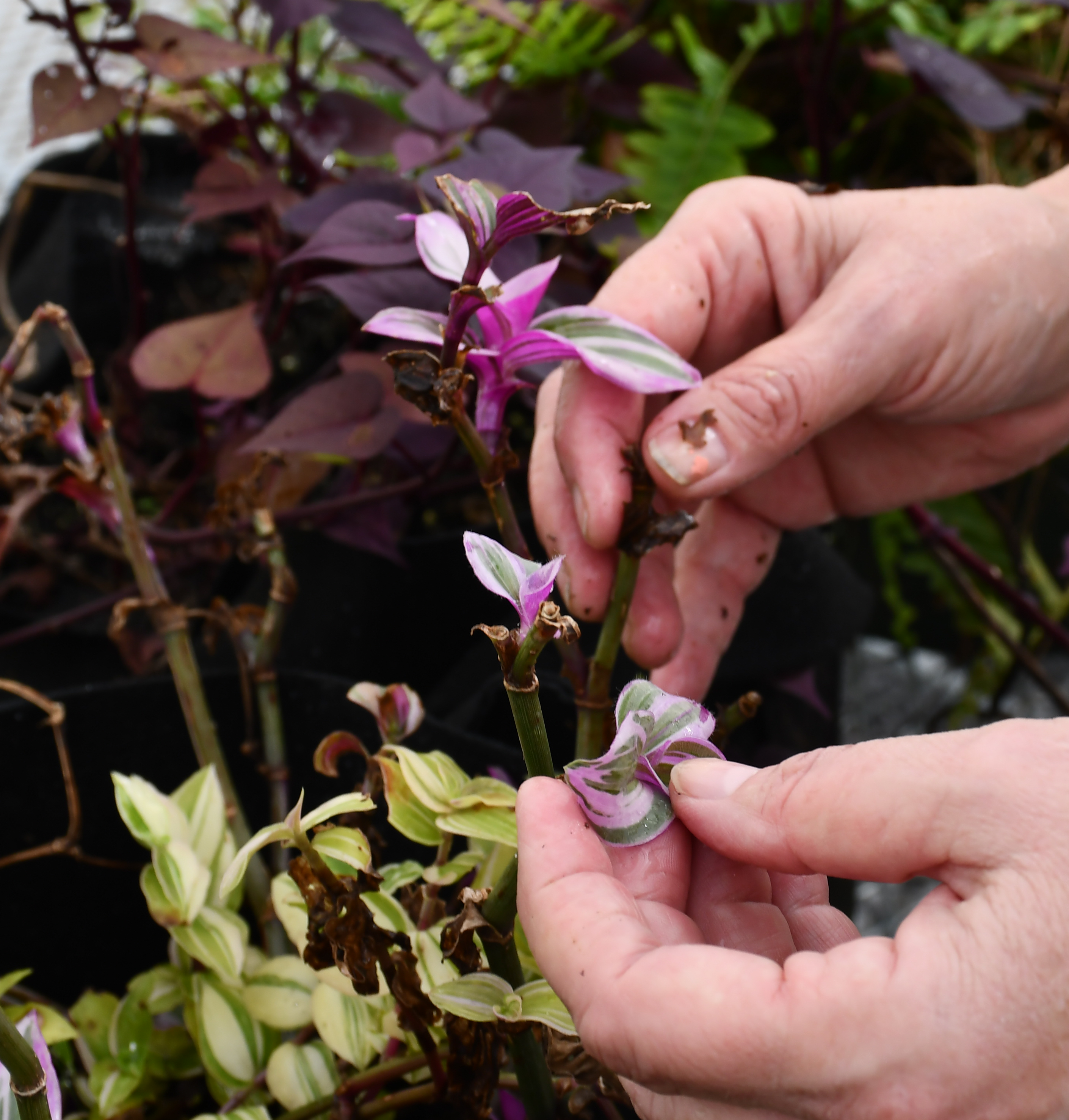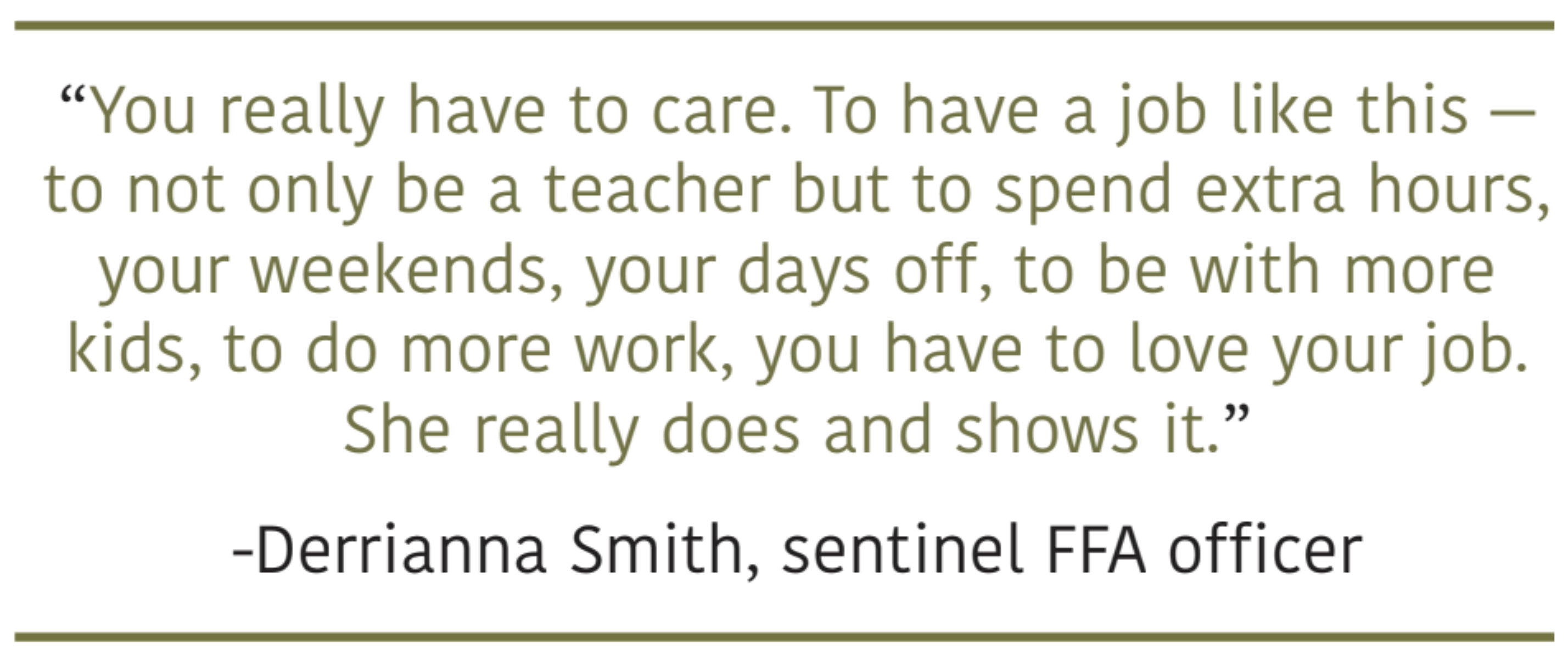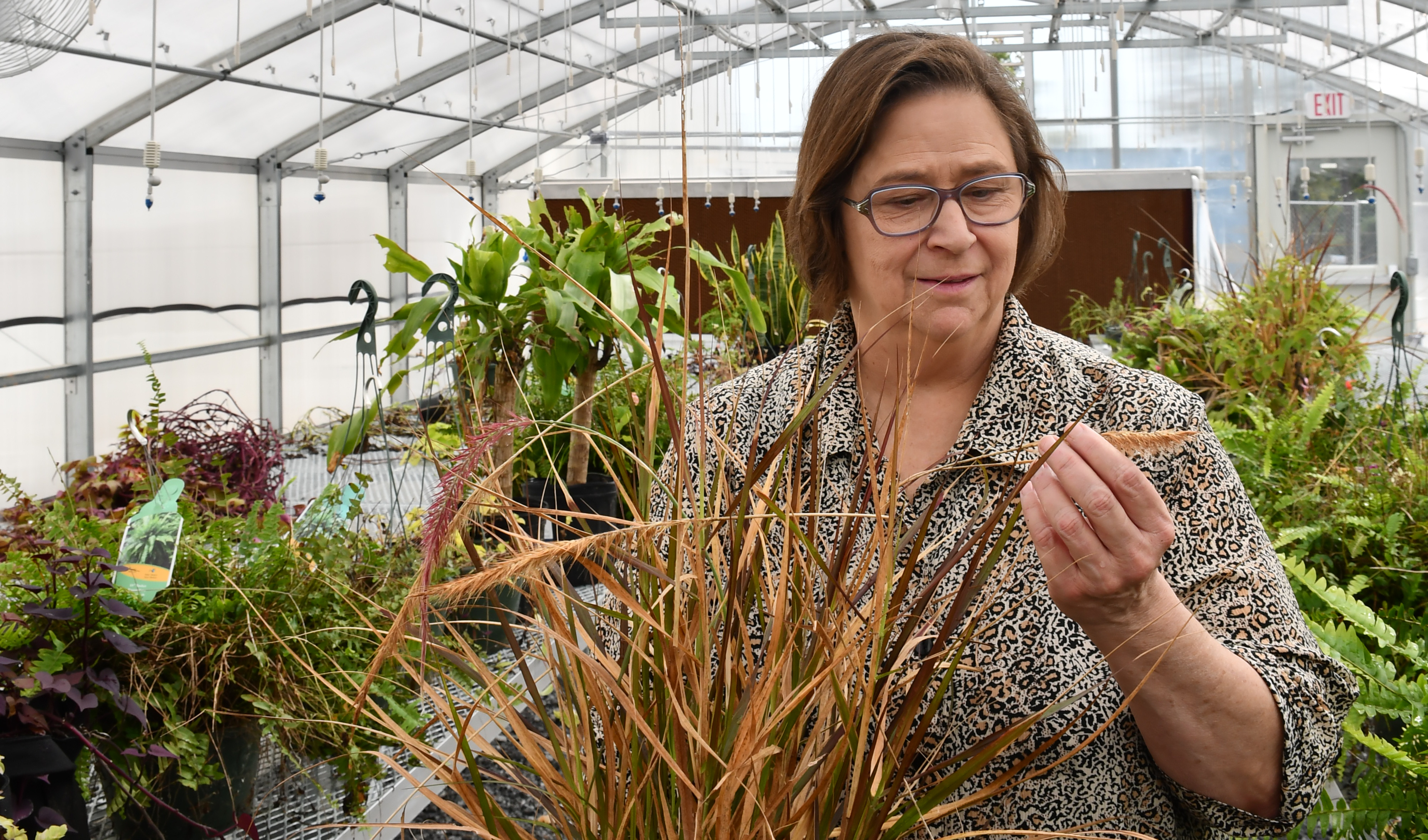Sowing skills: Julie Throne grows FFA and agriculture programs
Students shake tiny mason jars of cream and salt, making butter. An Australian Shepherd curls in the corner behind the teacher’s desk. Posters detailing animal anatomy and meat cuts decorate the walls.
This is Julie Throne’s classroom where she has taught agricultural science at Cedar Shoals since 2010. After almost 22 years of teaching, 17 years working for the Georgia Department of Agriculture prior and owning a cattle farm, much of Throne’s life centers around agriculture, but this wasn’t always the case.
“I grew up in a city, Fort Long Beach. There weren’t any cows, chickens, any of that kind of stuff in the neighborhood I lived in. I didn’t know about agricultural science until I went to college and I changed my major from business to animal science production,” Throne said.
Throne’s first exposure to agriculture was through the Block and Bridle club at Berry College, which she attended from 1981-85. Having friends who participated in the club exposed Throne to the agriculture program at the college.
The first agriculture class Throne ever took allowed her to work closely with animals.
“There was a class where you were given an animal to take care of, and you would have to go to the barn every day, twice a day, feed it, take care of it. At the end of the quarter, you showed the animal in an exhibit. The first time I did it I had a dairy cow. I learned how to put a halter on it, bathe it, take care of it and had to feed it twice a day,” Throne said.
This experience, along with her first job at the college working on the grounds crew, revealed to Throne just how much she enjoyed the outdoors.

“I had been somewhat of an outdoors person, but not really into it. Then I realized that I enjoyed doing stuff outside and I changed my major,” Throne said.
At Berry College, Throne earned her degree in animal sciences and met her husband, whose grandfather had a cattle farm in West Point, Georgia.
“When I told my mother I was going to go to Berry College, from the panhandle of Florida and the beach, up to Northwest Georgia, she told me I was going to marry a farmer. I told her ‘Mom, I’m just going to college. It’s got financial aid, you can work on campus, I need all this financial help. It just suits me better.’ I did end up marrying a farmer,” Throne said.
Now, Throne and her husband have their own cattle farm.
“We run an artificial insemination or breeding service. I’ve basically spent the majority of my life in agriculture, even though I wasn’t raised in it,” Throne said.
Having experience working in the agricultural industry allows Throne greater insight into her curriculum. When teaching, she provides students with real examples of what they’re learning.
“I understand agriculture because I’ve been in it. Having been the inspector, I know the science side of it. I’ve got food safety and food science in my background, I know what production’s like. I understand the meat part of it too, because we produce meat. So when there are people that have negative thoughts about meat production, raising cattle for consumption, I know the other side of it and I can explain to them why we do things,” Throne said.
Though long days teaching don’t allow her to spend as much time on the farm as she used to, owning a family cattle farm also gives Throne first hand knowledge about the agricultural economy.
“I understand (agriculture) because we do it. I know about the markets. I can explain to them the economics of it. If we go to war in Ukraine, there may be an export that we’re supposed to get, and we can’t get it. Agriculture is the basis of our economy and the global economy, and I just want them to understand that. Without farmers, you wouldn’t have any groceries, you wouldn’t have clothes,” Throne said.
Throne transitioned from working in agriculture full-time to teaching at LaGrange High School in 2000. In 2010, after moving from LaGrange to Oglethorpe County, Throne became the first agricultural science teacher at Cedar Shoals. Before her arrival, the school had received a grant to start an agriculture program. A greenhouse had been built with the funding, but the teacher meant to start had left for another school.
“It was really difficult to begin with, because the principal at the time was not fully sold on having an agriculture program, and the state had made them hire an ag teacher,” Throne said. “There were things that weren’t totally completed because there wasn’t a teacher to check. There was no heat in the greenhouse.”
Despite the humble beginning, Throne has been able to cement a successful agriculture program. Along with teaching, Throne also runs the Future Farmers of America chapter at Cedar Shoals. FFA is a nationwide student organization focused on agricultural education and leadership.
“Our FFA chapter is probably the most active organization here on campus. In agriculture, you don’t have to be a farmer, there’s a lot of different opportunities. We blend the pathways,” Throne said. “We do service projects. We’re responsible for collecting the recycling after school once a week. We do competitions. I have students that do floral design, horticulture, landscape or vet science. My favorite one is the agriscience fair. I have students that work on authentic agriscience experiments that model experiments that are being done at the collegiate and above level.”
FFA sentinel officer Derrianna Smith has participated in the program since seventh grade. Smith believes that the work students do as part of FFA is an important pillar of Cedar Shoals.
“We bring a name to Cedar Shoals. We build it up. We’re not the backbone, but we’re definitely a part of its structure. When we go to nationals, we make a name for ourselves but also Cedar as a whole,” Smith said.
This year, Throne accompanied 11 students to the national agriscience fair. FFA members who participate in agriscience fair gain not only scientific and academic experience but also greater life skills.
“When they get to college, they’ve got that experience writing lab reports, record keeping and even if they don’t go to college, that’s good experience. What they learn is transferable to other things. Even just the confidence that they can do this and don’t have to be the smartest, the fastest, the biggest, none of that,” Throne said.
Smith plans to pursue either agricultural science or nursing after high school. Though FFA has certainly given her important scientific skills and experience, growing her confidence and communication skills have been some of the most important things she’s learned from the program.

“To be able to work with a partner, especially having to work on heavy topics, you definitely have to communicate,” Smith said. “You also learn presentation skills. At the agriscience fair we have to present in front of judges, which can be really scary, but over the years you build up confidence.”
As a long-time FFA participant, Smith has seen how integral Throne’s guidance is to the program.
“She’s like a mother, she’s the backbone. We wouldn’t be what we are without her helping us and caring,” Smith said. “You really have to care. To have a job like this — to not only be a teacher but to spend extra hours, your weekends, your days off, to be with more kids, to do more work, you have to love your job. She really does and shows it.”
The effort Throne puts into her students, their work and the school reflects this care.
“Years ago, a student was with my daughter at UGA for Young Scholars. They introduced themselves and she said ‘you might know my mother, she teaches agriculture at Cedar Shoals,’” Throne said. “The student says, ‘I know your mom. She’s got a cult going on out there’.”
Though certainly not a cult, FFA students feel supported to learn and grow different skills with Throne’s guidance.
“I really enjoy working here, I’ve got a great group of kids,” Throne said. “My main thing is personal growth. The mission statement of the FFA is premier leadership, personal growth and career success. So if I can prepare them for whatever career they want, then I’ve done my job.”




